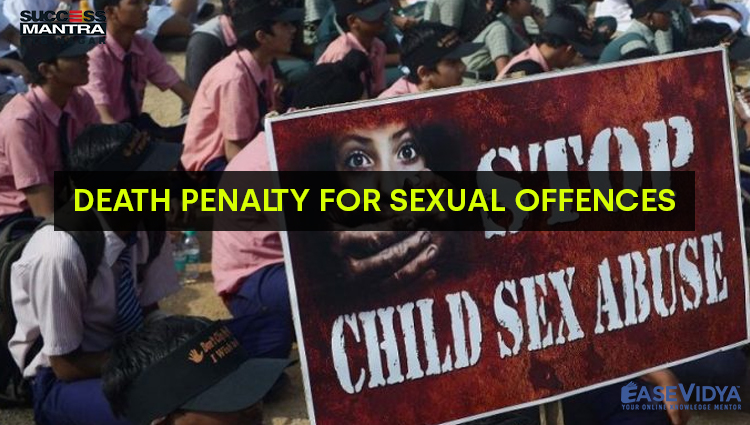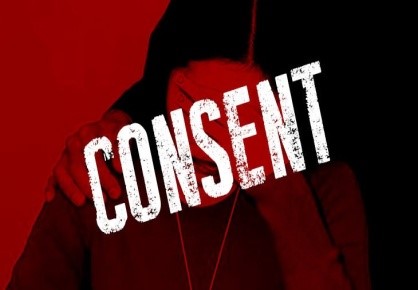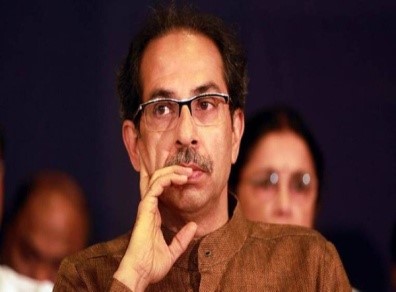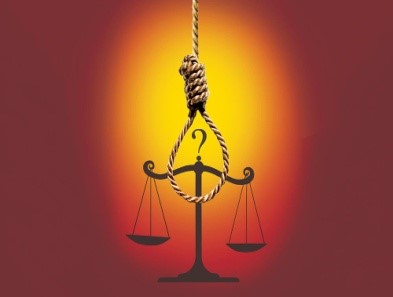
DEATH PENALTY FOR SEXUAL OFFENCES
DEATH PENALTY FOR SEXUAL OFFENCES

Sexual offences against women and children are one of the most heinous crimes against humanity. Given this, the public has a real and legitimate interest in addressing such concerns, leading to the death penalty’s demand to deter sexual offences purportedly. In this context, on Human Rights Day 2020, the Maharashtra cabinet approved the Shakti Bill, enlarging the scope of harsher and mandatory sentences — including the death penalty — for non-homicidal rape (excluding Marital Rape).
The Maharashtra government has been positioning its ‘Shakti bill’ as a potential landmark legislation to curb sexual offences against women and children. The bill was being pushed by the Uddhav Thackeray-led government in the two-day winter session of the state legislature that concluded Tuesday. However, after demands of more time from the Opposition and outcry from activists, the government decided to send it for review to a 21-member committee comprising MLCs and MLAs.
SHAKTI BILL OF MAHARASHTRA GOVT.

The proposed ‘Shakti law’ involves two bills — the Maharashtra Shakti Criminal Law (Maharashtra Amendment) Act, 2020, and the Special Court and Machinery for Implementation of Maharashtra Shakti Criminal Law, 2020. The draft legislation seeks amendments to the Indian Penal Code (IPC), Code of Criminal Procedure (CrPC) and the Protection of Children from Sexual Offences (POCSO) Act to include new offences, increase punishments and speedier investigations and trials. According to the home department, the bill proposes punishments for crimes that were not specifically covered under the laws for crimes against women and children earlier. These include threatening women and defaming them on social media, making false complaints about rape and acid attacks, non-cooperation of social media platforms and public representatives in such investigations and bringing in restrictions to protect the identity of victims in molestation cases and acid attacks, just like in rape cases.
Most prominently, the Shakti bill proposes introducing the death penalty as punishment for rape, acid attacks and sexual offences against children. It also seeks a general increase in the quantum of punishment for crimes against women and children. In acid attack cases, the penalty levied on the accused will be made available to the survivor for medical expenses as well as getting plastic surgery.The Shakti Bill comes amid the recent legislative trend to invoke the death penalty for sexual offences. For instance, the Andhra Pradesh government passed the Disha Bill in 2020 (pending presidential assent), that provides the death penalty for the rape of adult women. However, introducing the death penalty diverts attention from deep-rooted issues & long-term solutions. It suggests that the reason for such crimes is that the punishment is not severe enough.
ASSOCIATED ISSUES WITH DEATH PENALTIES

• May Do More Harm To Victim: Women’s right groups have argued that the death penalty is a knee-jerk and populist solution to counter sexual offences. Also, Child-right activists insist that introducing capital punishment for non-homicidal rape may lead rapists to kill their victims to erase testimonial evidence.
• Death Penalty Won’t Remove Prejudice: Introducing harsher penalties does not remove systemic prejudices from the minds of judges and the police. Generally, police might refuse to register complaints or acquit offenders in cases they do not consider “serious” enough to warrant a mandatory minimum.
• Lower Rate of Conviction: According to crime data from the National Crime Records Bureau, in 93.6% of sexual offences, the perpetrators were known to the victims. Therefore, introducing capital punishment would deter complainants from registering complaints.
• Delay in Closure of Justice: The execution of a death sentence comes at the end of multiple stages of appeals and avenues of seeking clemency. This time extended to the defendant to exhaust all legal remedies will delay the judicial process’s finality and closure—militating against the competing interest of ensuring speedy justice. It might also see an increase in instances of instant retribution, such as the extrajudicial killing of gang-rape and murder suspects in Hyderabad late in 2019.
• Regressive Step: The Justice Verma Committee Report that made several recommendations on the laws on sexual offences (after Nirbhya rape case 2012), held that the death penalty’s deterrent effect is “a myth”. The report stated that it would be a regressive step to introduce the death sentence in non-homicidal cases.
OTHER KINDS OF ISSUES RELATED TO THE BILL
The other anti-women assertion in the bill moves away from the standard of affirmative consent in cases involving adult victims and offenders. Significant advocacy from the women’s movement led to introducing an affirmative standard of consent, rooted in unequivocal voluntary agreement by women through words, gestures or any form of verbal or non-verbal communication. In a sharp departure, the bill stipulates that valid consent can be presumed from the “conduct of the parties” and the “circumstances surrounding it”. Rape trials continue to be guided by misogynistic notions, expecting survivors to necessarily resist the act, suffer injuries and appear visibly distressed. Therefore, the bill’s vaguely worded explanation holds dangerous possibilities of expecting survivors to respond only in a particular manner, thus creating the stereotype of an “ideal” victim.
CONCLUSION
• Plugging Gaps in Justice Delivery: The most severe gaps in the justice delivery system are reporting a police complaint. Therefore, the focus of the criminal justice system needs to shift from sentencing and punishment to the stages of reporting, investigation, and victim-support mechanisms. In this context, the following measures must be ensured:
• The victim reports a case without any fear. Police to conduct a sound investigation. Victim protection throughout the trial. Making testification as easy and as quick as possible. Allocation of resources and more robust implementation of the law than is currently evident.
• At a Broader Level: Despite the ever-increasing ambit of the death sentence, there has been little effort to address prejudices in society. Addressing the prejudices in the society against sexual offences requires sensitisation of functionaries of the justice system & more importantly society.
• Instead of merely enhancing punishment, tackling crimes against women and children requires broader social reforms, sustained governance efforts and strengthening investigative and reporting mechanisms.












0 Comment